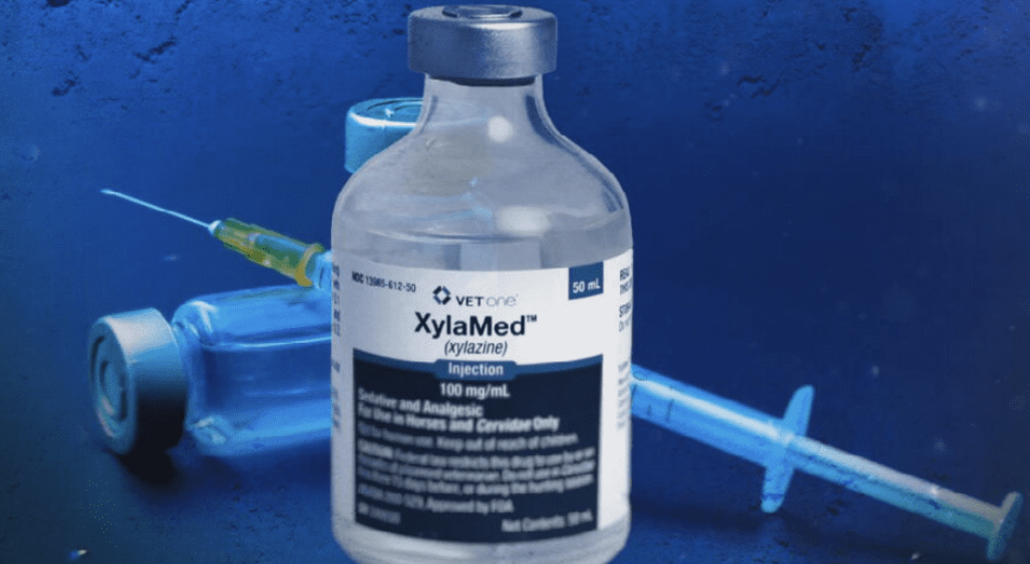Will Medicaid cover Suboxone? In most cases, yes. Medicaid generally covers Suboxone to treat opioid addiction, though the specifics vary by state. This guide breaks down what you need to know about Medicaid coverage for Suboxone, including state-specific details and how to access this treatment.
Key Takeaways
- Medicaid covers Suboxone for opioid addiction treatment in most states, but coverage specifics can vary widely based on state policies and regulations.
- Patients may encounter requirements such as prior authorization, quantity limits, and counseling mandates that can influence access to Suboxone through Medicaid.
- Various FDA-approved alternatives to Suboxone, including methadone and buprenorphine mono-product, are also covered by Medicaid, providing additional options for treatment.
Does Medicaid cover Suboxone for opioid addiction treatment?
Yes, Medicaid covers Suboxone for opioid addiction treatment in most states, but the specifics of this coverage can vary significantly. The federal SUPPORT Act mandates that Medicaid covers Medication-Assisted Treatment (MAT), which includes Suboxone, as part of its efforts to combat the opioid crisis. This requirement ensures that individuals struggling with opioid use disorder (OUD) have access to essential treatments.
However, the details of Medicaid coverage for Suboxone are shaped by individual state Medicaid programs. Each state has its own regulations, which can include requirements like prior authorization, prescription limits, and specific guidelines for use. For instance, many states necessitate prior authorization before a suboxone prescription for Suboxone is covered, ensuring that the treatment is deemed medically necessary.
Navigating Medicaid coverage effectively requires understanding these state-specific guidelines. We’ll break down how Medicaid coverage for Suboxone works and provide a state-by-state breakdown of coverage policies. This will help you better understand what to expect and how to access the treatment you need.

How Medicaid coverage for Suboxone works
Suboxone, a combination of buprenorphine and naloxone, plays a vital role in Medication-Assisted Treatment (MAT) for opioid addiction. Buprenorphine partially activates opioid receptors, reducing cravings and withdrawal symptoms, while naloxone blocks opioid effects, deterring misuse. This dual-action makes Suboxone a powerful tool in addiction treatment.
Medicaid categorizes Suboxone under its preferred drug list or formulary, which can vary by state. Typically, Medicaid programs prefer generic versions of Suboxone to control costs, covering brand-name medications only if no generic alternative exists. This categorization helps streamline the approval process and ensures that patients receive necessary medications without undue delay.
Key terms like prior authorization, step therapy, and quantity limits are essential to understand:
- Prior authorization requires healthcare providers to obtain approval from Medicaid before prescribing Suboxone, ensuring the treatment’s medical necessity.
- Step therapy mandates trying less expensive alternatives before approving Suboxone.
- Quantity limits restrict the amount of medication that can be prescribed within a specific period.
Coverage includes both brand-name Suboxone and its generic version alternatives, depending on state policies. Understanding these nuances helps patients and healthcare providers navigate Medicaid’s requirements effectively, ensuring timely access to necessary treatments, including insurance cover suboxone and suboxone insurance coverage and generic equivalents.
State-by-state Suboxone Medicaid coverage
The landscape of Medicaid coverage for Suboxone may vary based on the state’s Medicaid program, often influenced by the federal poverty level. Some states offer full coverage with minimal restrictions, while others impose stricter controls.
Below, we categorize states into three groups based on their policies: full coverage with no restrictions, coverage that depends on prior authorization (PA), and states with strict limits.

What to do if your Medicaid plan restricts Suboxone access
Facing restrictions on Suboxone access can be frustrating, but there are several steps you can take to overcome these barriers. If your Medicaid plan denies coverage, you have the option to appeal the decision. Working closely with your healthcare provider to gather supporting documentation can strengthen your case and increase the likelihood of approval.
Requesting an exception with your physician’s support is another viable option. Physicians familiar with Medicaid policies can advocate for your treatment, highlighting the medical necessity of Suboxone. In some cases, switching to alternative treatments, such as buprenorphine-only products or other suboxone alternatives, may be a practical solution.
Partnering with online suboxone doctors who understand the intricacies of Medicaid and cost assistance can make a significant difference. These providers can help navigate the appeals process, request exceptions, and explore alternative treatments, ensuring that you receive the necessary care.
Alternatives to Suboxone covered by Medicaid
While Suboxone is a widely used treatment for opioid addiction, several FDA-approved medications are also covered by Medicaid. Methadone, available through specialized clinics, is a long-standing option for treating opioid use disorder. To understand how it compares, review suboxone vs methadone for key differences in use and coverage. Naltrexone (Vivitrol), another alternative, blocks opioid receptors and is typically covered by Medicaid. You can explore the comparison of naltrexone vs suboxone to understand which may suit your needs best.
Buprenorphine mono-product, which contains only buprenorphine without naloxone, is another effective treatment. Medicaid often covers these alternatives, providing options for patients who may not respond well to Suboxone or have contraindications.
These alternatives are used in various scenarios, depending on patient needs and state Medicaid policies. Methadone, for example, is often used for patients requiring daily supervision, while Naltrexone is suitable for those who have completed detoxification. Understanding these options ensures that patients can access the most appropriate treatment for their situation.
Additional costs and limitations to expect with Medicaid Suboxone coverage
Medicaid coverage for Suboxone often comes with additional suboxone costs and limitations. Co-pays may apply based on income level and state policies, affecting the overall cost of treatment. It’s important to check with your state Medicaid program to understand potential out of pocket costs.
Pharmacy restrictions can impact access to Suboxone in several ways:
- Some states limit coverage to specific pharmacy networks, requiring patients to fill prescriptions at designated locations.
- Duration caps may impose limits on how long Suboxone is covered.
- Renewal requirements may necessitate periodic reassessment of treatment needs.
Counseling or behavioral therapy requirements are another consideration. Many states mandate that Suboxone coverage is contingent upon participation in counseling or therapy, reflecting a whole person approach to addiction treatment and substance abuse and substance use disorder. Being aware of these requirements helps ensure compliance and continued access to necessary medications.
How to check your Medicaid plan's Suboxone coverage
Verifying your Medicaid plan’s coverage for Suboxone involves several steps:
- Call your plan provider to inquire about specific coverage details.
- Ask about prior authorization requirements and quantity limits.
- Seek guidance from your provider on the approval process.
- Clarify any uncertainties with your provider.
Visiting the Medicaid portal or formulary lookup tool is another effective method. These online resources provide comprehensive information about covered prescription medications and state-specific policies. Consulting with your prescribing doctor or treatment center can also provide valuable insights, as they often have experience navigating Medicaid requirements.
When verifying insurance coverage, it’s essential to ask specific questions. Inquire about prior authorization, quantity limits, and any additional requirements for counseling or therapy. This proactive approach ensures that you have a clear understanding of your coverage and can access the necessary treatment without delays.
Bottom Line: Getting Suboxone with Medicaid support
Most Medicaid programs cover Suboxone, provides suboxone crucial support for individuals battling opioid addiction. However, navigating these programs requires understanding state-specific policies and potential limitations. Working with certified MAT providers familiar with Medicaid processes can significantly enhance your treatment experience, especially when the MAT-covered options are considered.
Effective addiction treatment is available and supported by state healthcare systems. Leveraging Medicaid coverage and seeking assistance from knowledgeable treatment centers allows you to access the necessary resources for a successful long-term recovery journey, especially for those facing suboxone addiction.
FAQs about Medicaid and Suboxone coverage
Can I get Suboxone for free with Medicaid?
Yes, Medicaid typically covers Suboxone, but you may still be responsible for co-pays that depend on your income level and state regulations. It's advisable to check with your Medicaid provider for specific details.
What if I lose Medicaid while on Suboxone?
If you lose Medicaid while on Suboxone, it's crucial to consult your healthcare provider for alternative options or programs that can help maintain your treatment. They can guide you through available resources to ensure you continue receiving the necessary support.
Does Medicaid cover Suboxone for pain management?
Medicaid generally does not cover Suboxone for pain management, as its primary coverage is for opioid use disorder treatment. It's important to consult your specific Medicaid plan for detailed information on coverage.
How long will Medicaid cover Suboxone treatment?
Medicaid coverage for Suboxone treatment varies by state, often with specific limits and requirements for periodic renewals. It's crucial to check your state's regulations to understand the exact duration and conditions.
What if I’m denied Suboxone coverage?
If you are denied Suboxone coverage, you can appeal the decision, request an exception with support from your physician, or consider alternative treatment options. It's important to advocate for your health needs.
















